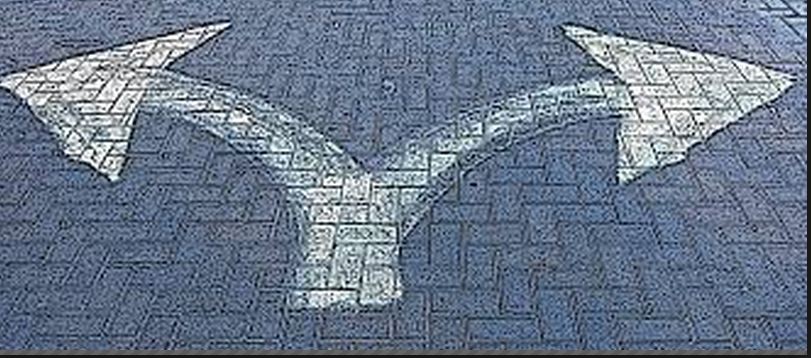
Essay: For Better or Worse
By: Raymond Greiner
When I open my computer each morning it’s like pulling the drain plug on an overflowing sink. I’m uncertain if this habit is my passion or my poison. As I lift the computer’s top a lighted apple greets me with a bite taken out. Is there prophecy here? Did Jobs have a vision? He was frequently tagged visionary. So, I question his choice of an apple and what it may represent or signify. The Bible says the apple was a forbidden fruit and God cast Adam and Eve from the Garden of Eden for taking a bite of an apple. This seems relative. Are we presently east or west of Eden? Is my computer for better or worse? I can’t decide.
In contemporary times questions keep popping up their ugly little heads, like hand puppets scattered throughout the ever-growing pile of techno debris. We can gain instant access to everything. Weather can be tracked by the minute. We can check the half time score of a soccer match in South Africa or find the best route to Aunt Martha and Uncle Jake’s new home. Some become entranced, checking Facebook every ten minutes or deeply engrossed texting friends as flashing thumbs fly across keypads, and the real kicker is that wonderful new “I” phone you just purchased was obsolete before you bought it. Is all of this for better or worse? I can’t decide.
According to present day societal evaluation if you have a job that requires physical tasking you are either an illegal immigrant who can’t speak English or stupid. The revelation is all the smart people have magic glowing screens on their desks serving as support elements for daily tasking placing them quite above those guys trimming tree branches around power lines or mowing the fairway at the local country club, forming distinct social separation. Is this for better worse? I can’t decide.
Typically after sports events the announcer reveals detailed analytical breakdown highlighting statistical contributions from individual players responsible for victory or defeat. When our government posts data revealing employment percentages we only get the final score. Absent from this presentation is data revealing the number employed earning wages below an ability to afford basic living costs. Another clever trick is elimination of the vast numbers who have given up their search for employment and this statistical omission depicts falsely overall appraisal, categorizing this group as social castaways, placing them in a cultural void. It’s a disappearing act of the political magic show. Maybe David Copperfield has taken over the government. Is this activity for better or worse? I can’t decide.
Within our social high tech design of everything ambitious political candidates are fused with computers and their intense power for spreading goals as prospective public servants. Data banks stream forth with information about what voter’s desire most, gained from results of widely dispersed e-mail surveys and online studies. From this data political candidates form complex strategies as a means of voter persuasion. Banks of speechwriters are commissioned to create persuasive sales pitches influenced from what this data reveals. Election success will come from voter count and it becomes imperative that candidates say exactly what voters want to hear. Deviation from this formula is a guarantee for failure. If these voters want war, they get war. If these voters want more free stuff, it’s on the way. If some voters want better schools, it’s a venture with uncertainty, an issue that may find itself on the back burner, turned down low. Politicians step gingerly on these kinds of issues. Is all of this for better or worse? I can’t decide.
War and threat of war is about where it was ten thousand years ago. The most prolific difference is the sophistication of weaponry. Those “I” phones are handy little gadgets for triggering roadside bombs and patiently waiting in the wings for their time on stage are the big guns, viewed by many as the final solution to it all. The United States is making a great effort to defuse opposing countries of these horrid weapons. In the meantime, the United States maintains abundant silos with missiles locked and loaded. For better or worse? I can’t decide.
The place I live is remote, offering isolation but not escape from reality. I see abundant nature each day and feel personally peaceful and content. I wonder how those squirrels scrambling up and down trees and the mice hiding in the woodpile have been able to achieve harmony and balance that continues to elude collective humankind. Spring is appearing in small places, buds are showing on thorn bushes and grass displays tinges of green. The sky is vividly blue and touches green in tender embrace. As I approach the seventy-fifth mile marker on my life’s trail I pose the question. Is this for better or worse? Better for certain.




